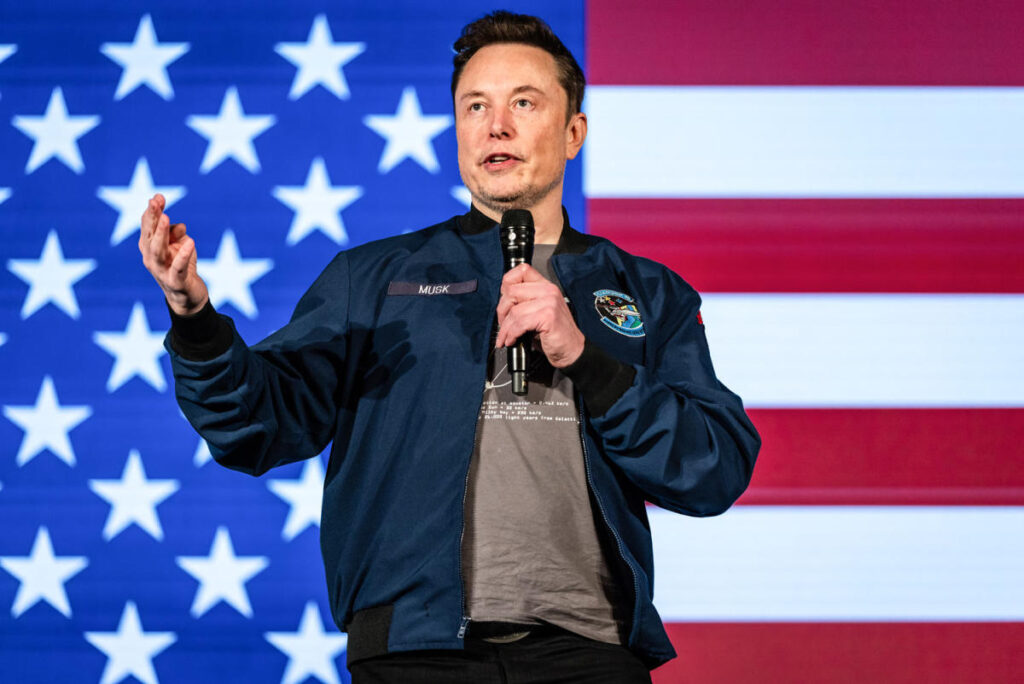Elon Musk’s close ties with President-elect Donald Trump have raised significant concerns regarding foreign policy and potential conflicts of interest. Since Trump’s election victory in November, Musk has frequently accompanied him at Mar-a-Lago and during international engagements, such as visiting French President Emmanuel Macron and Italian Prime Minister Giorgia Meloni. Musk’s role in Trump’s inaugural call with Ukrainian President Volodymyr Zelenskyy underscored his influence at a critical moment. These interactions have prompted scrutiny from Washington insiders concerning Musk’s extensive global investments, particularly in China, and his support for far-right political movements. The ethical implications of Musk’s business interests overlapping with his newfound political influence are a source of alarm among former government officials.
As the CEO of SpaceX, Musk is significantly tied to U.S. government contracts, exceeding $15 billion. His companies are integral to NASA and the Pentagon, providing essential services like Starlink satellite communications, which are vital for military operations worldwide. Given Musk’s direct interactions with leaders of countries perceived as adversaries, such as China and Russia, analysts have grown increasingly concerned about the implications of these connections as they relate to national security and foreign policy. These meetings, which have included Chinese President Xi Jinping, highlight the potential for Musk’s business interests to intersect with U.S. diplomatic actions, further complicating the landscape of government relations.
Former U.S. officials have voiced concerns about Musk’s growing influence under a Trump administration, particularly regarding conflicts of interest that could arise from his role in advising on government efficiency. With the possibility of recommending widespread job cuts within federal agencies, Musk’s position raises important questions about accountability and ethics, especially in light of his extensive dealings with foreign governments. Policymakers fear that Musk’s entanglement in foreign relations could lead to decisions that favor his businesses at the expense of sound governance and national interest.
Current government members, including Secretary of State Antony Blinken, have acknowledged the potential for collaboration between the outgoing and incoming administrations while steering clear of directly commenting on Musk’s role. Blinken emphasized the importance of transition efforts and the role of new advisers, such as Senator Marco Rubio and Representative Mike Waltz, while sidestepping the subject of Musk’s involvement. This unease demonstrates a recognition of the complex dynamics at play in the shifting political landscape, where Musk’s ambitions for global influence might not align with U.S. strategic interests.
Musk has also become embroiled in foreign political controversies, notably in the U.K. and Germany, where he has aligned himself with far-right movements. His outright criticism of British leadership and endorsements of extreme political factions have raised eyebrows internationally. By promoting divisive political narratives, Musk’s actions could further complicate diplomatic relations during a period when maintaining cohesive foreign policy is crucial for the U.S. Such positions have led critics to question whether Musk is positioning himself as a power broker in global politics instead of merely a business innovator.
Recently, Musk’s involvement in the political sphere took on a new reality, as his actions appeared to undermine funding legislation driven by House Speaker Mike Johnson. As admiration for Musk grows among certain political factions, others are increasingly wary of the prospect of his holding informal power alongside Trump. The notion of Musk acting as a “shadow president” has circulated, igniting debates on the appropriateness of his influence in the realm of U.S. foreign policy. In light of these developments, the future trajectory of U.S. diplomacy, particularly under a Trump administration, faces significant uncertainty with Musk’s entanglement in both business and government affairs becoming more pronounced.

